Censorship Industrial Complex
Australian local council calls for ‘immediate suspension’ of mRNA COVID vaccines
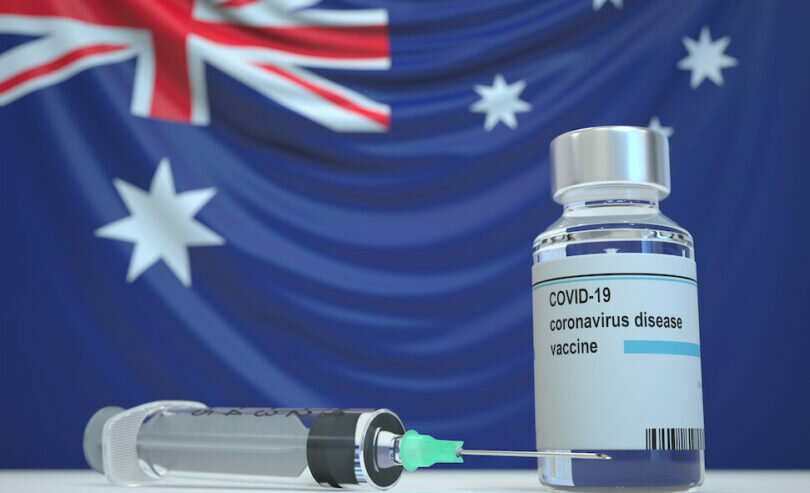
From LifeSiteNews
By David James
The Port Hedland council cited a report by molecular virologist Dr. David Speicher that ‘evidences excessive synthetic DNA contamination in Pfizer and Moderna vaccine vials used for both adults and children.’
Councillors in Port Hedland, in Western Australia’s north-west, have called for the “immediate suspension” of mRNA COVID-19 vaccines, challenging federal and state government policy.
The council cited a report by molecular virologist Dr. David Speicher that “evidences excessive synthetic DNA contamination in Pfizer and Moderna vaccine vials used for both adults and children.” A council statement said testing revealed DNA contamination levels between “7 to 145 times higher than Australia’s Therapeutic Goods Administration (TGA) limit”.
In addition, the council claimed that Pfizer vials contain elements not initially disclosed to regulators. “The report raises serious concerns about potential long-term health impacts such as genomic integration, exponential cancer risks, and adverse outcomes due to synthetic DNA contamination.”
The research is just one of many investigations pointing to serious issues with the mRNA vaccines. For example, an analysis by David E Allen, honorary professor at the University of Sydney’s School of Mathematics and Statistics, found that all-cause mortality is up in Australia where vaccination rates are high, and that at least two thirds in the variation per region is explained by mass COVID-19 vaccination.
Troubling results are being replicated around the world. To cite one instance of many, researchers in Japan are warning that Covid mRNA shots are now “affecting every possible aspect of human pathology.” They have linked the Covid mRNA injections to increases in 201 types of diseases.
Rather than responding to the council’s concerns and investigating its claims dispassionately the Western Australian premier, Roger Cook, chose the bullying option. He told the Port Hedland council to “stick to its knitting,” whatever that means. He argued the council “should stay focused on the services and people of that community” adding that “it’s another example of that council lacking the focus on the issues which matter to their constituents … making sure they look after the people, not get distracted by these silly ideological debates.”
It was a ridiculous response, reported uncritically by the government funded media outlet the Australian Broadcasting Corporation (ABC). Why is expressing concern about a health danger “ideological”? If anyone is being ideological, it is Cook. And surely such a potential danger would be “of concern” to the local community?
The ABC article was an example of the aggressive suppression of non-compliant views by Australia’s political and media elite. Neutral, disinterested reporting now seems all but abandoned in the mainstream media, replaced by commentary from journalists with no expertise.
Thus, the ABC story claimed, without explanation or evidence, that the report being referenced by the council was “unverified”. Not verified by whom? And are ABC journalists in a position to make sound judgements on complex medical claims? Then, to drive the point home that deviating from the government line was not to be tolerated, an extraordinarily patronizing breakout story was entitled “How to spot when you are thinking like a conspiracy theorist.”
Cook’s attack on vaccine dissenters has become a routine feature of public discourse. State and federal governments are stridently trying to divert attention away from what they did.
But the Port Hedland Council move is significant because it comes from the local level. When the upper levels of government are compromised, and the executive branch of government is out of control, the best hope of reviving some sort of democracy and focus on the interests of ordinary people may be at the municipal level. It is why anti-lockdown and pro-freedom activist Monica Smit is directing her interest towards council elections.
There is little doubt that there is a growing awareness in the Australian public that something is very wrong not only with the vaccines, but also the government’s response to dissent. Even powerful proponents of the vaccines are starting to feel unease, especially about the federal government’s proposed misinformation bill, a blatant attempt to impose censorship. Dr. Nick Coatsworth, a television doctor, senior health official and one of the most public figures in Australia’s Covid response, has warned against the ‘weaponization’ of misinformation to silence debate.
Australia’s local councils are the nation’s oldest layer of government. They are not mentioned in the Australian constitution because they were formed before it was written. As Australia’s political and government institutions deteriorate, the Port Hedland council is perhaps showing a way that some semblance of democracy might be restored.
Business
U.S. to deny visas to foreign censorship enforcers under new Rubio-led policy
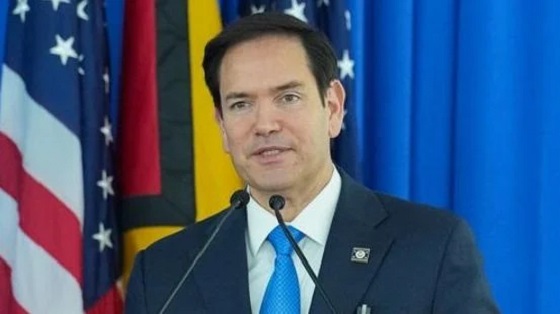
 MxM News
MxM News
Quick Hit:
Secretary of State Marco Rubio announced a new U.S. policy to deny visas to foreign officials who pressure American tech firms to censor content. The move is the latest in a series of actions aimed at dismantling what the administration calls the “global censorship-industrial complex.”
Key Details:
- Visa bans will apply to foreign officials and their families involved in censorship targeting U.S. citizens, companies, or residents.
- Justice Alexandre de Moraes of Brazil and EU Digital Services Act (DSA) officials could be among those affected.
- The policy follows the shutdown of the State Department’s Global Engagement Center and a broader crackdown on foreign speech controls.
Around the world, governments are threatening & censoring US social media platforms for legal speech. Now, @SecRubio @StateDept says it will deny visas to foreign nationals engaged in censorship against Americans, US tech companies, and people posting from inside the US. pic.twitter.com/24g0EdHLyx
— Michael Shellenberger (@shellenberger) May 28, 2025
Diving Deeper:
The United States will begin denying entry visas to foreign officials who attempt to censor American citizens or pressure U.S. tech companies to suppress free speech. The policy, unveiled by Secretary of State Marco Rubio, marks the most aggressive push yet by the Trump administration to confront what it calls “global censorship collusion.”
The new policy, enabled under provisions of the Immigration and Nationality Act, applies not just to the offending officials but also to their immediate families. It targets those responsible for direct censorship, those who engage in lawfare to silence political dissent, and those who try to export censorship mandates into American digital platforms.
While State Department officials were careful not to name specific individuals, the measure could impact Brazilian Supreme Court Justice Alexandre de Moraes—widely criticized for ordering the censorship of political opponents—and senior officials in the European Union overseeing the controversial Digital Services Act. The DSA has drawn backlash from U.S. leaders for its sweeping influence over American-based companies like Google, Meta, and X.
Rubio, who has led a significant shift in U.S. foreign policy priorities since assuming office at Foggy Bottom, previously shut down the State Department’s Global Engagement Center. That office had funneled taxpayer money to NGOs like the UK-based Global Disinformation Index, which was implicated in censorship pressure campaigns linked to U.S. intelligence entities.
Just last week, the State Department hinted at potential Magnitsky Act sanctions against Moraes, whose aggressive speech controls in Brazil have become a global case study in judicial overreach. The Justice Committee in Congress also approved legislation aimed at banning him from entering the United States.
As part of the administration’s strategic realignment, Acting Undersecretary of State for Public Diplomacy Darren Beattie has been tasked with leading efforts to protect American free speech interests abroad. “Obviously, we don’t love the idea of the Europeans censoring their own citizens,” Beattie told The Wall Street Journal, “but the principal concern is these spillover effects affecting content-moderation policies and a variety of free-speech concerns within the United States.”
The administration’s stance is that U.S. free speech is not just a domestic issue but a strategic priority. A recent State Department communication said the U.S. “is committed to shutting down the global censorship-industrial complex.”
Under the new visa policy, sanctions could also apply to officials who threaten arrests or asset seizures against tech companies, or demand that U.S.-based firms alter content moderation policies in line with foreign censorship laws. It further covers foreign actors who try to punish U.S. residents for online speech, or order tech platforms to withhold payments to users in retaliation for political or social commentary.
The announcement is backed by the America First Policy Directive, an executive order signed by President Donald Trump in January, which declared that the protection of American citizens and their rights must remain a central objective of U.S. foreign policy.
The administration has made clear that it sees free speech not only as a constitutional right but also as a geopolitical asset. Vice President J.D. Vance, speaking at the Munich Security Conference in February, warned against the rise of censorship regimes in Europe targeting populist movements like that of Marine Le Pen in France.
(AP Photo/Jacquelyn Martin, Pool)
Censorship Industrial Complex
Trump admin probing U.K.’s crackdown on free speech
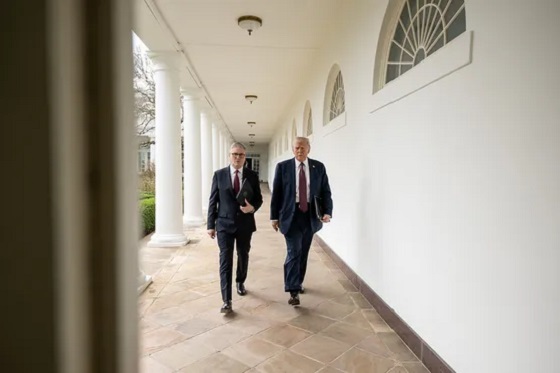
Quick Hit:
The Trump administration quietly dispatched U.S. diplomats to Britain in March to investigate growing free speech concerns. According to The Telegraph, they met with pro-life campaigners arrested for silent prayer and questioned UK officials about internet speech laws.
Key Details:
-
A five-person U.S. delegation visited Britain in March to probe free speech issues, meeting activists like 74-year-old Rose Docherty, arrested for silently praying outside an abortion clinic.
-
The team also met with UK Foreign Office officials and Ofcom, which now polices online content under the country’s Online Safety Act.
-
In February, Vice President JD Vance warned free speech is “in retreat” in Europe and pointed to arrests of pro-life demonstrators in the UK.
Diving Deeper:
According to The Telegraph, the Trump administration sent a team from the State Department’s Bureau of Democracy, Human Rights, and Labor to Britain in March for meetings with victims of what the administration views as increasingly authoritarian speech restrictions. The diplomats reportedly engaged with pro-life campaigners, including 74-year-old Rose Docherty, who was arrested for quietly praying near an abortion facility under the UK’s controversial “buffer zone” law.
“I didn’t break the law, I didn’t influence, I didn’t harass, I didn’t intimidate,” Docherty told reporters. “This can’t be just. It’s heartening that others around the world, including the U.S. government, have realised this injustice and voiced their support.”
The U.S. team also met with British government officials, including members of the Foreign Office and Ofcom. Ofcom’s growing authority over digital speech, enhanced under the UK’s new Online Safety Act, has become a flashpoint between Washington and London. The legislation allows British regulators to impose large fines on American tech companies for failing to adequately monitor and censor online content—a power U.S. officials say could have serious consequences for American firms and speech protections.
Vice President JD Vance spotlighted the issue during his speech at the Munich Security Conference in February, calling out the United Kingdom by name. “I look to our very dear friends, the United Kingdom, where the backslide away from conscience rights has placed the basic liberties of religious Britons, in particular, in the crosshairs,” he said. Vance specifically cited cases like Docherty’s, warning of a broader erosion of fundamental rights across Europe.
The administration’s concerns extend beyond religious liberty. The case of Lucy Connolly, a 42-year-old British mother sentenced to 31 months in prison for social media posts after a horrific mass killing in Southport, has also attracted attention from Trump allies. Reform UK leader Nigel Farage, a longtime ally of President Trump, described the case as emblematic of a “two-tier Britain” and claimed, “My American friends cannot believe what is happening in the UK.”
Despite mounting criticism, British Prime Minister Sir Keir Starmer has denied there is a crisis. In a February meeting with President Trump at the White House, Starmer said, “We’ve had free speech for a very, very long time in the United Kingdom, and it will last for a very, very long time.”
That reassurance hasn’t quieted concerns. A separate report from The Times of London in March found that British police make more than 30 arrests every day over alleged offensive online or public statements—amounting to approximately 12,000 arrests annually.
-

 Addictions24 hours ago
Addictions24 hours agoMan jailed for trafficking diverted safer supply drugs, sparking fresh debate over B.C. drug policies
-

 Alberta1 day ago
Alberta1 day agoHow Trump and Alberta might just save Canada
-

 Business1 day ago
Business1 day agoThe Liberals Finally Show Up to Work in 2025
-
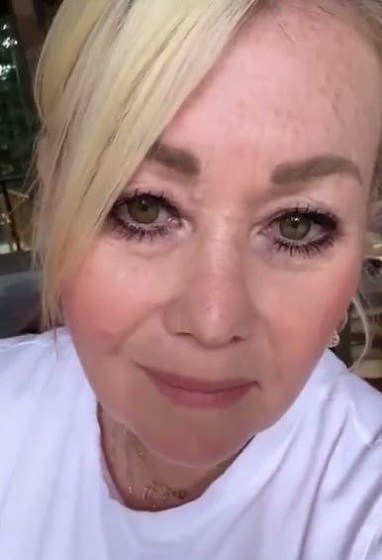
 Alberta24 hours ago
Alberta24 hours agoJann Arden’s Rant Will Only Fuel Alberta’s Separation Fire
-

 Bruce Dowbiggin21 hours ago
Bruce Dowbiggin21 hours agoCaitlin Clark Has Been The Real Deal. So Her WNBA Rivals Hate Her
-
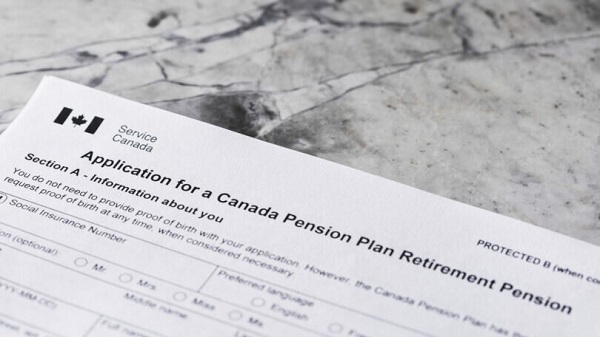
 Banks22 hours ago
Banks22 hours agoCanada Pension Plan becomes latest institution to drop carbon ‘net zero’ target
-

 Daily Caller23 hours ago
Daily Caller23 hours agoThere’s A Catch To California’s Rosy Population Stats
-

 espionage2 days ago
espionage2 days agoTrudeau Government Unlawfully Halted CSIS Foreign Operation, Endangering Officers and Damaging Canada’s Standing With Allies, Review Finds



